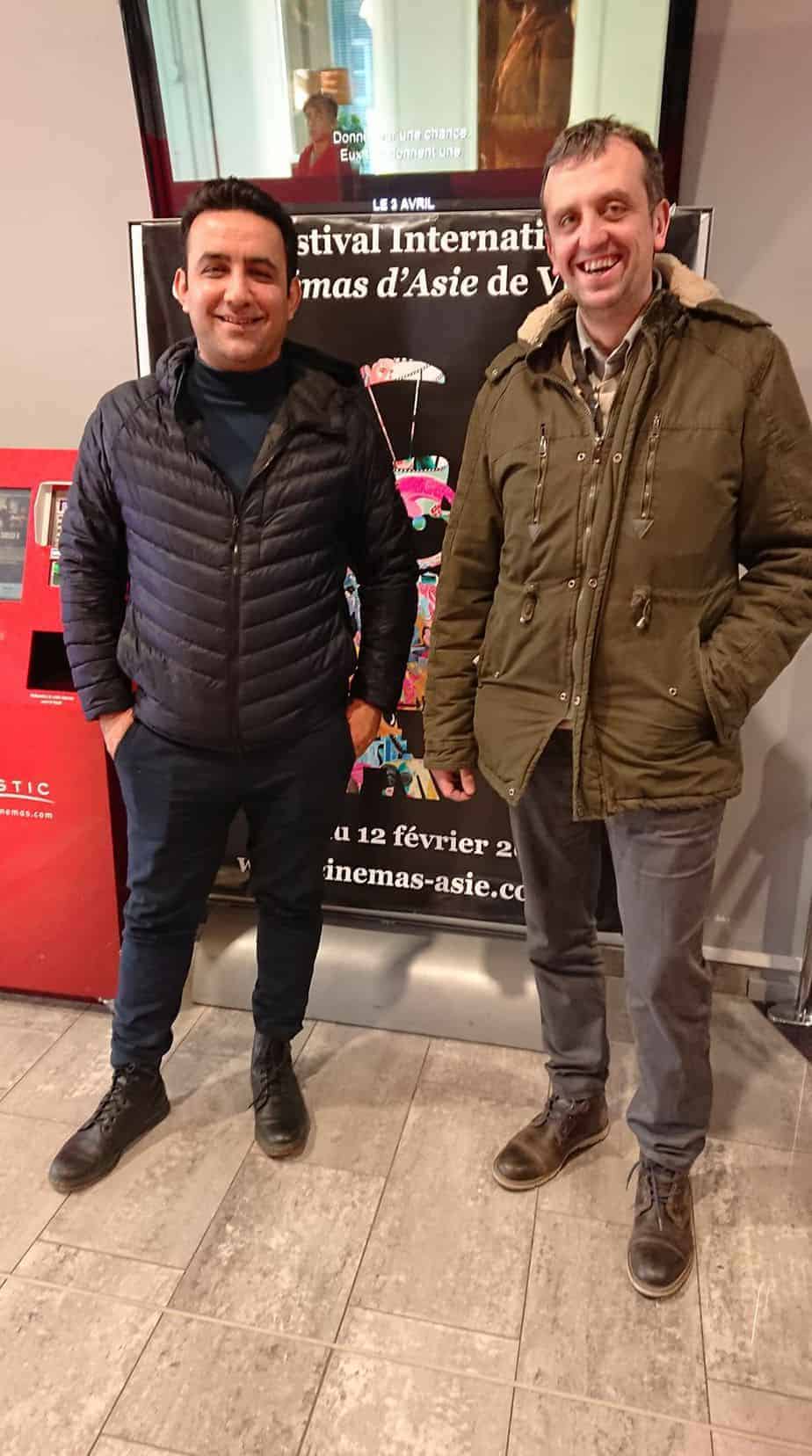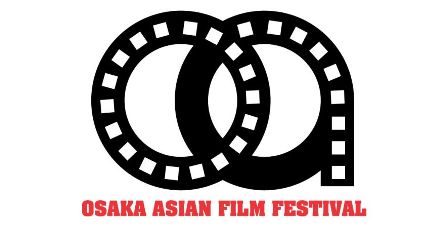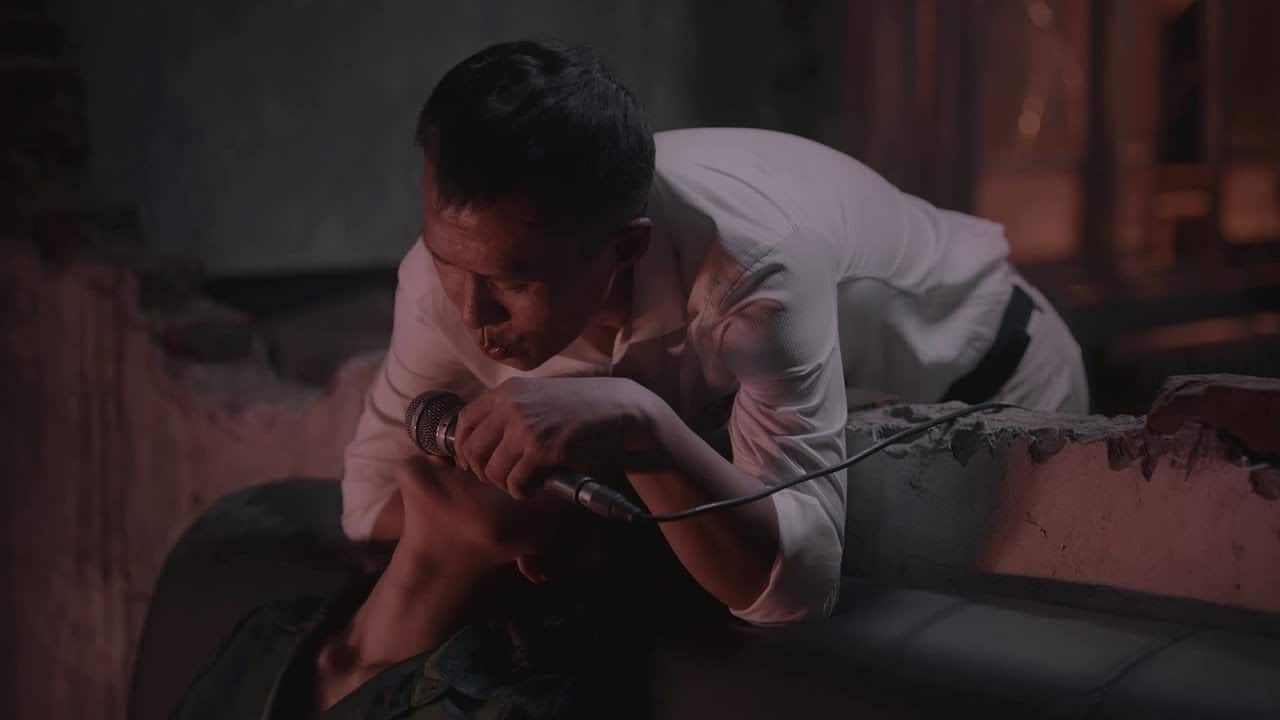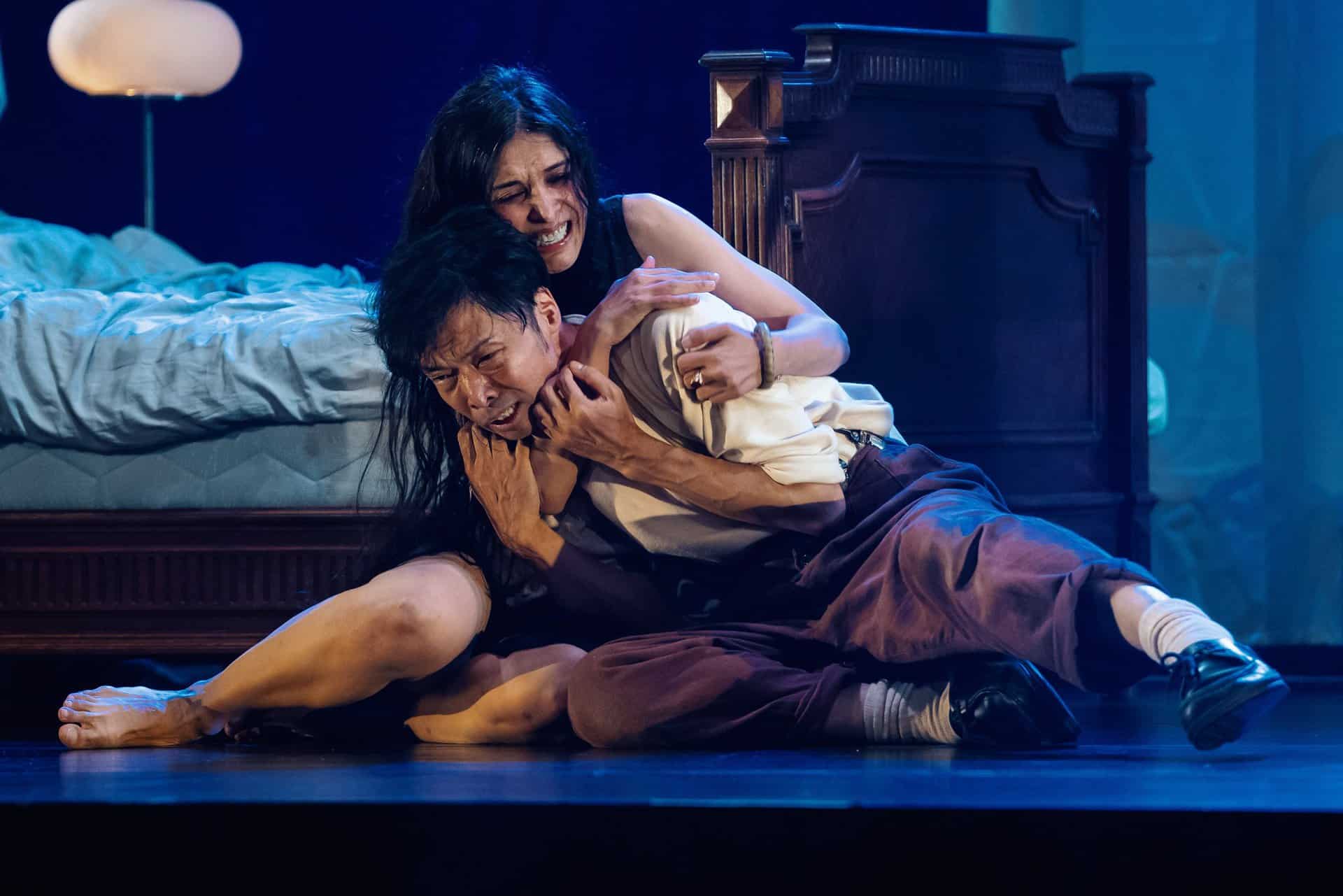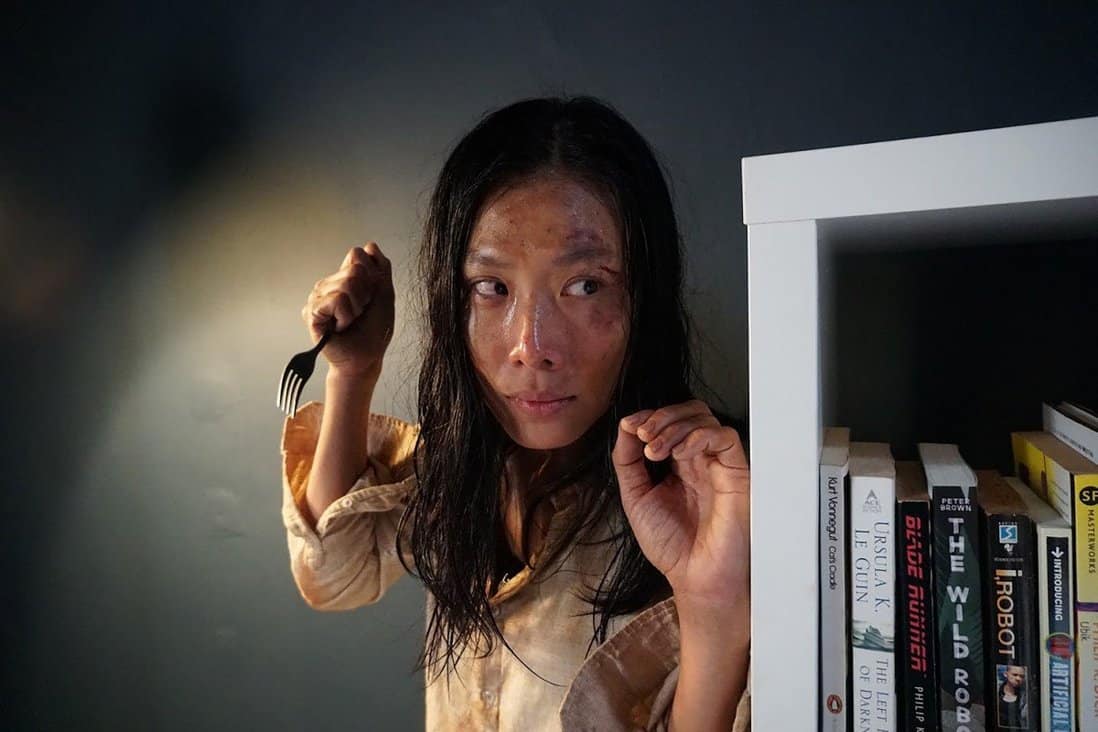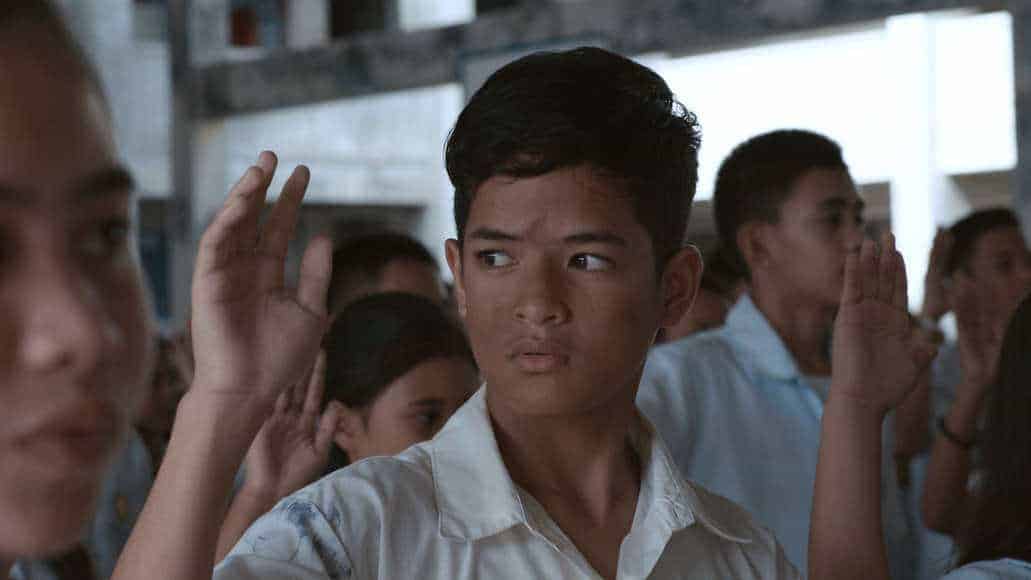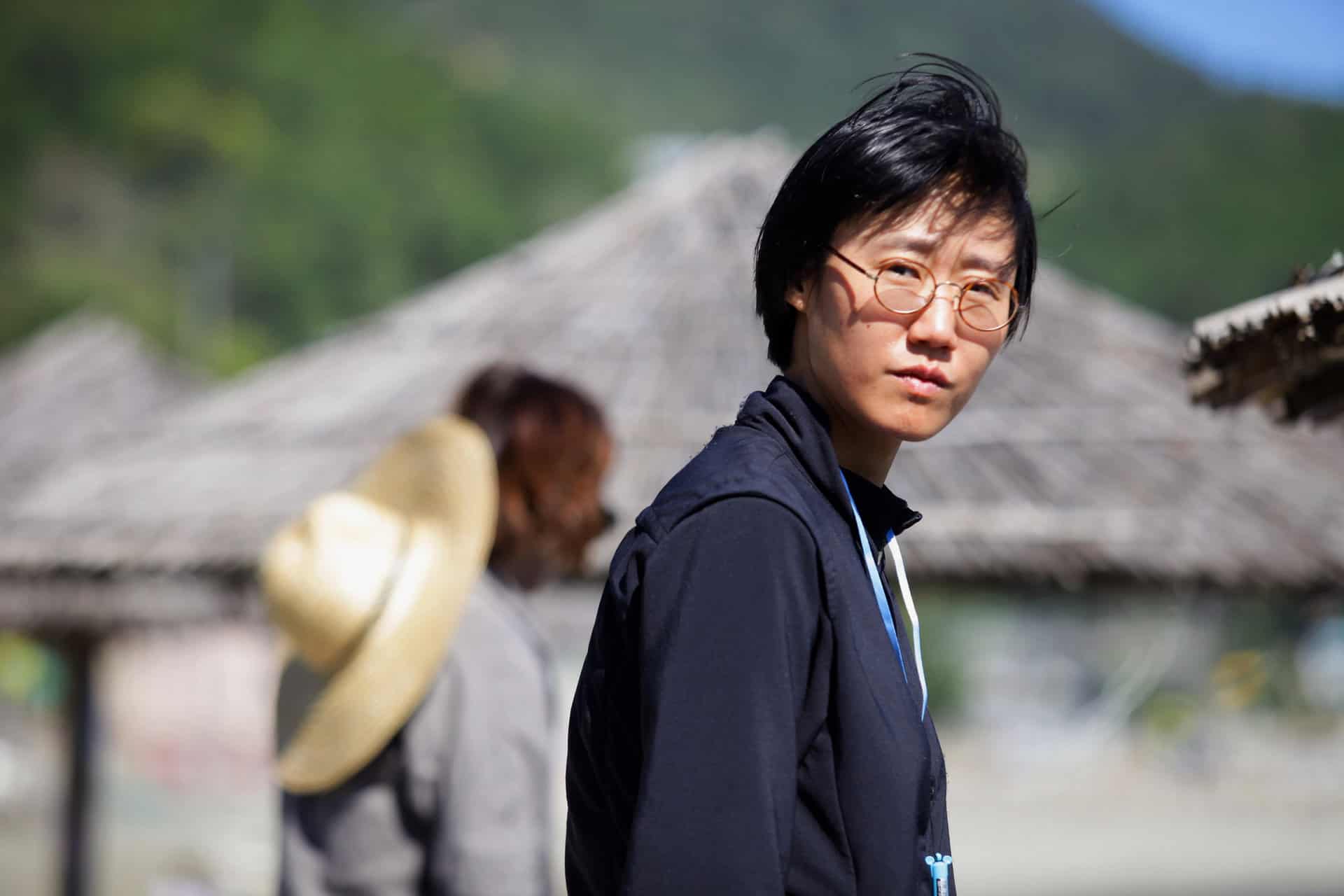Jamshid Mahmoudi was born in 1983 in Afghanistan. He was hardly one-year-old when his family sought refuge in Pakistan, and then in lran. After high school graduation, he passed the entrance exam for Tehran's University of Art but preferred to work with his older brother, Navid who is a producer. He was an assistant director in many TV films and features before directing his first TV film in 2008 and 3 others after that. In 2012, finally he directed his first feature, A Few Cubic Meters of Love, inspired by a true story that took place in Kabul. The film was introduced from Afghanistan to Oscar 2014. It attended about 35 International festivals that brought the film 8 awards. In 2016, he worked as the scriptwriter, the producer and editor of the feature film named Parting of his brother. Rona, Azim's Mother is his second feature film as the director and scriptwriter.
On the occasion of Rona, Azim's Mother screening at the 25th Vesoul International Film Festival of Asian Cinemas, where it won the Grand Jury Prize and the INALCO Grand Prize, we speak with him about being a refugee still after 30 years, working with non-professional actors, Iranian and Afghan traditions, the Iranian movie industry and many other topics.
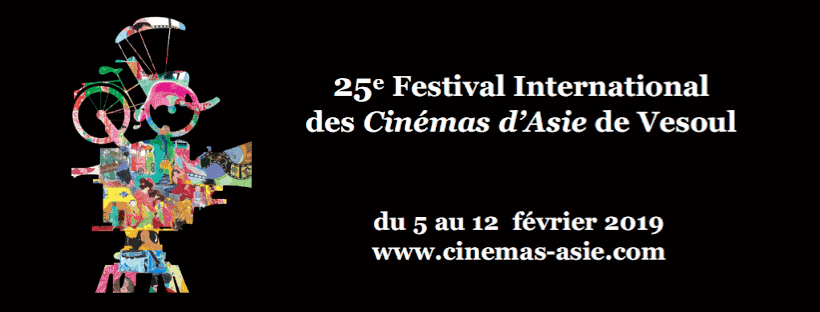
You are still a refugee in Iran and you have been for 30 years, how has this shaped you as an artist and as a person?
I still have to receive statute of residence, so I have to renew my permission every year, and normally I don't have any problem because it is renewed and besides that, when I work it's another story; I don't have any kind of issues apart from maybe a revision on the script which is the same for everybody, even Iranians.
At one point in the movie, the guy who is supposed to donate his organs, he utters the phrase “fuck this life”. Do you sometimes feel like that, that life is like that?
No, I'm the type of person who loves life, and still if I had the opportunity to be reborn, I wouldn't ask to, because I'm satisfied with my life.
In general, how is the situation with Afghans in Iran at the moment?
There are two categories: those who are already established, so they have papers, they have official documentation, therefore they don't have much of a problem, apart from issues imposed by the government to refugees. For example, a non-Iranian can't buy a house, a car, even a landline telephone, so in these cases they are helped by their Iranian friends, so somebody who gives his name and tries to help. But the other category who came and stayed for five years to acquire papers, they have a real difficult life because they don't have any possibilities, they work but they are living with problems.
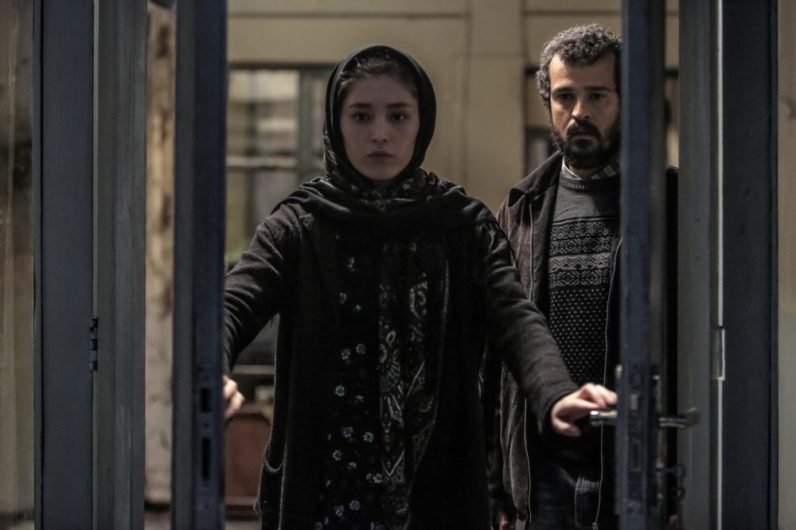
In the celebration in the beginning, the protagonist is asked to sing, but he doesn't, because he has promised he will not sing until he has a child. Is this regular behavior?
For certain Afghans, singing is a sin, they have this in mind, and he had made a wish in his mind to have a child, and he promised himself not to sing before he has his child. So even though they asked him, even though in the party the other guys are singing and playing instruments, it doesn't matter, since still in the minds of so many people these kinds of things are sins. Because music is sin. I saw it actually in my own family, where my uncle longed for a son and he had done this kind of wish not to sing in order to wait for having a son. It's a question of repentance.
Are mothers so important in Afghan families as it is depicted on the film?
It's a kind of Oriental thing, families in which you respect a lot your parents, but it doesn't mean it's a general thing. Normally it's this way, I mean you respect and you love your parents but it happens also in the family to badly treat your mother or be violent or whatsoever, so this is not a general rule, but yet most people are brought up to respect their parents.
And so the custom is for the parents to stay with their children after some time?
This also applies in Iran but in Afghanistan, this custom is sharper, you have to keep your parents up to their death, if they need it. It's a kind of ill respect if you don't keep them.

Can you give us some details about the casting process for the film?
Okay, so the two guys, two brothers, they are actually actors: the younger one, who works hard, he's a theater actor, he has played in Fahradi's film beforehand; and the other one he's a TV man but he has also played in some films. So they are professionals in a way. The sister has played in my brother's film beforehand, “Parting” and they've been to a local film festival and she won the Best Actress prize. The mother and the brother's wife they have never played, they're not really actors.
The mother has never played before?
No. She has got actually a beautiful face, in reality she has lived a very hard life, and she's still working doing different things.
How old is she?
Near 70, but she really suffered. The fact is that among Afghans there are two categories: those who look like Iranians – there are many many tribes but those who look like Iranians they don't have much of a problem because they can get into the society and they can't be recognized in a way. In spite all problems, they don't have that much of harship, but the other ones are left-aside people, the ones who look like Asians,
The mother looks Asian.
Yes. They're considered foreigners, and those have real problems in accessing work, to have permission to do many things, many doors are closed.
So, how did you guide her for the role?
I have always used non-professional actors, even in my previous films, and meanwhile, when I am shooting I am always behind them “just do this, that, bend your head, smile, cry” I repeat the instructions all the time.
Can you tell us a bit about the actor who plays the uncle?
He's a non-actor also. It is very difficult, it's time-taking when you work with non-professionals, since this means that you take more time to make them adapt themselves and make them play. I used a lot of tricks to make them play; for instance if I wanted to make them sad I would play some very sad songs they love, and the actors knew they'll become sad et cetera, it's mind tricks.
As I was watching the movie I felt that at some point, the big brother will become violent, but he never did. Why is that?
Nowadays in Iran this is kind of a challenge, not to be violent. I did not want to present him as such, but instead to show there is a kind of forgiveness. The two brothers hate each other for a moment, but then the younger brother finally does the job and he calms down everything.
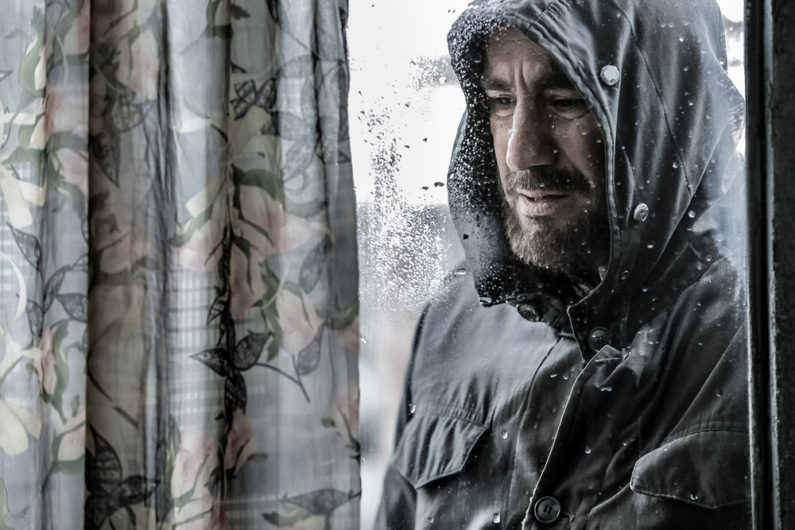
I found that one of the best aspects of the film is Koohyar Kalari's cinematography.Can you give us some details about your collaboration?
He's the son of Mahmoud Kalari, his father is the best cinematographer of Iranian cinema.
Oh really? I didn't know that.
Yes, Koohyar Kalari had already worked with my brother, and we watched many films I love together. We put a lot of time in finding the proper shooting positions, the colors and putting everything together. I spent a lot of time with actors and a lot of time with him to achieve this result.
In the scenes with the doctor, you chose not to show him at all, we just hear his voice. Why is that?
Because it wasn't important, because we could have read or heard what he said, what they said, but the important thing was the expression of the patient in front of him.
The women in the film, particularly the wives and the sisters seem to have very little power. Is that the case in reality?
Those who have been brought up in Iran, or those who came to Iran, they have learnt to defend themselves, speak up, they can buy cars, they ask for what they need. Of course the male power is still there because it's a traditional family, but they have learnt. it is a bit different for those who are in Afghanistan, there is a real male power and submission of women.
How difficult was it to raise the funds for the film? I read that your brother also helped in that part.
Since we are working for the Iranian TV, we do not have any issues with the government, and that is where the money for my films actually come from. We work for TV, produce for TV, and with the money we get we shoot movies. At the moment, I am in the middle of shooting a TV series
What is the situation with the Iranian movie industry at the moment?
During these past five years, they have decided to build a lot of cinema halls, since a lot of them were destroyed; mostly in malls and commercial centers, and they have also put more money in production, because the money they invest bring back more.
And what about the quality of the movies?
I think Iranian cinema has a good position now because a lot of films screen in foreign countries, in festivals; there are a lot of comedies, a lot of mainstream films and I feel the situation is good in general.
Are you working on anything new?
I want to make a film about Afghan issues, but for the time being I am working on another project, mainly focusing on the death penalty and forgiveness.
Which directors and movies do you consider your biggest influences?
Nuri Bilge Ceylan, the winner of the Palme D'or for ‘Winter Sleep'; Andrey Zvyagintsev, Cristian Mungiu. More than all of them for me, though, is Abbas Kiaorostami. Because all these people that I name they have been influenced by him. Ceylan said it many many times that he was influenced by Kiaorostami.


